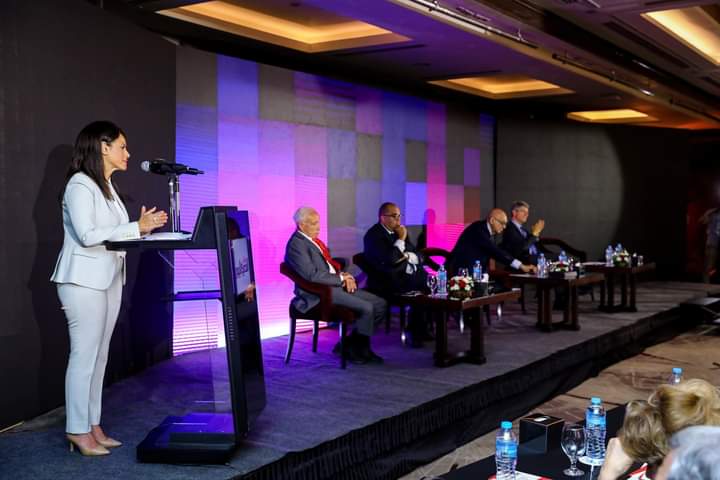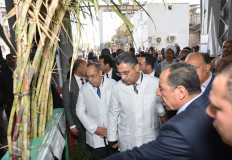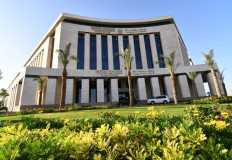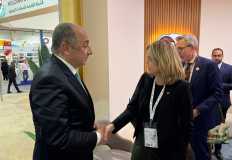
Dr. Rania Al-Mashat, Minister of Planning, Economic Development and International Cooperation inaugurated the economic forum organized by 'Al Masry Al Youm' under the title 'A New Generation of Economic Policies,' which was held today Sunday with the participation of renowned economists and world leaders, including Professor Jeffrey Sachs, Dr. Mahmoud Mohieldin, the UN Secretary-General's Envoy on Financing for Development, Mohamed Salmawy, Chairman of the Board of Directors of Al Masry Al Youm Foundation, and businessman Salah Diyab.
The conference was attended by a
distinguished group of economists and officials, including Engineer Ibrahim
Mahlab, former Prime Minister of Egypt, Hossam Heiba, Chairman of the General
Authority for Investment, Dr. Mohamed Maait, former Minister of Finance,
Engineer Tarek El Molla, former Minister of Petroleum, and Mounir Fakhry Abdel
Nour, former Minister of Industry, as well as other leading economics
professors and specialists.
In her speech, the Minister highlighted
the unprecedented global economic challenges since 2020, characterized by
complex and intertwined crises that may be the worst in decades. These crises
disproportionately affect developing countries and least developed countries,
exacerbated by ongoing geopolitical tensions that impact future prospects and
credit ratings in the region.
She noted that the world has
witnessed a series of severe crises, beginning with the COVID-19 pandemic,
which plunged the global economy into recession. Subsequent regional and
international geopolitical tensions further exacerbated these challenges,
contributing to a sharp rise in inflation rates and increased economic and
social pressures due to soaring energy and food prices.
She emphasized the widening
development gap faced by developing and least developed countries,
necessitating urgent, comprehensive, and innovative measures to safeguard
development gains and ensure macroeconomic stability until 2030. With only 17%
of development goals on track, many countries are increasingly vulnerable to
economic shocks.
Turning to Egypt's situation, Al
Mashat affirmed the country's vulnerability to global and regional challenges.
Egypt has adopted a proactive approach to address these crises through a
comprehensive development perspective that encompasses social, economic, and
environmental issues.
The Minister highlighted the
implementation of a national economic and structural reform program aimed at
promoting macroeconomic stability, competitiveness, and a favourable business
environment. This program focuses on three key areas: enhancing macroeconomic
resilience, improving the competitiveness of the Egyptian economy, and supporting
the green transition.
She has also launched a new framework to achieve qualitative growth. This framework is driven by evidence-based policies, increased investment in human capital, industrial development, support for small and medium enterprises, technology and entrepreneurship promotion, and green investments in sustainable infrastructure.





